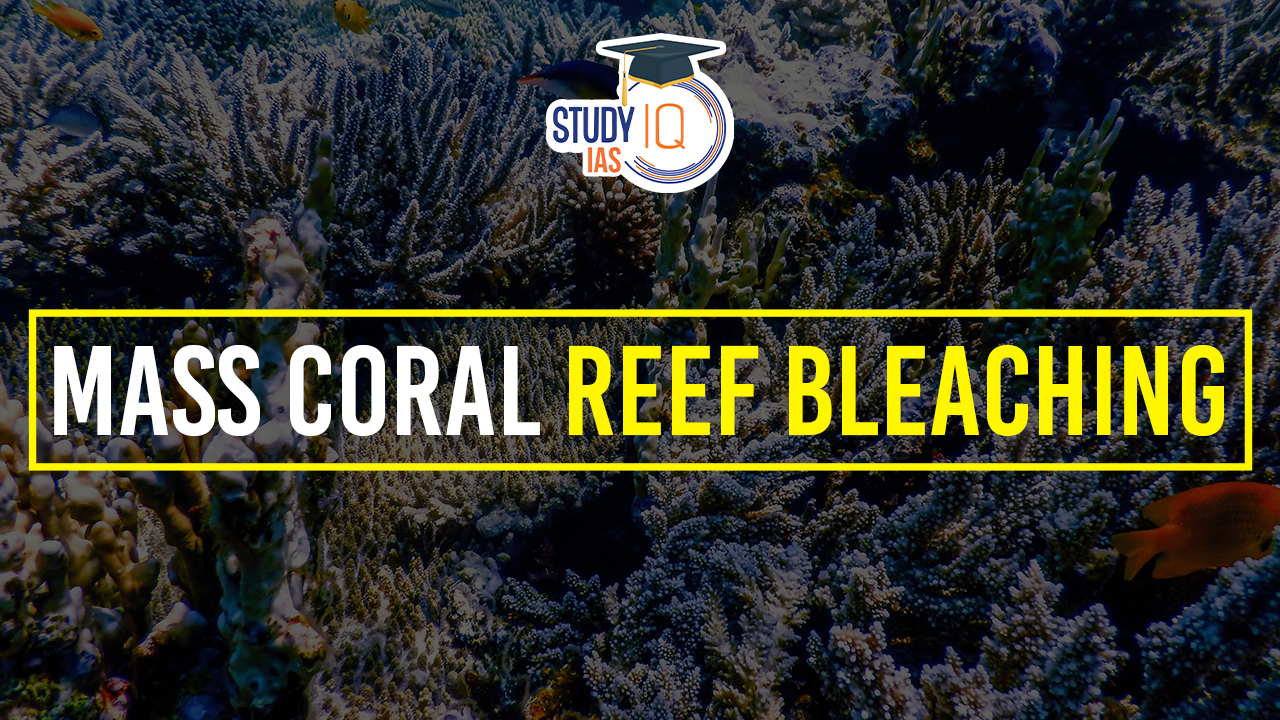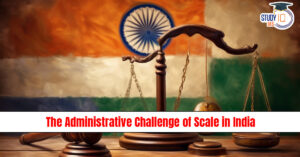Table of Contents
Context: According to the U.S. National Oceanic and Atmospheric Administration (NOAA), the world is on the verge of a fourth mass coral bleaching event which could see wide swathes of tropical reefs die.
What Are Corals and Coral Reefs?
- Corals are marine animals known as polyps that form a symbiotic relationship with algae called zooxanthellae.
- The zooxanthellae provide corals with food and oxygen, while corals offer a protective habitat.
- Coral reefs are structures made of limestone, composed of coral polyps, found in tropical climates.
We’re now on WhatsApp. Click to Join
Coral Bleaching
- Coral bleaching occurs when corals, under stress such as high temperatures or pollution, expel their symbiotic algae.
- Bleached corals turn white and struggle to survive without the algae.
- If stressors are mitigated promptly, corals may recover as zooxanthellae return.
- Reefs are crucial for marine biodiversity, coastal protection, and carbon absorption.
- They contribute to the livelihoods and safety of human communities.
| NOAA’s Findings on Coral Bleaching |
|


 One Lakh Crore Urban Challenge Fund Appr...
One Lakh Crore Urban Challenge Fund Appr...
 The Administrative Challenge of Scale in...
The Administrative Challenge of Scale in...
 Administrative Scorecards’ for Secreta...
Administrative Scorecards’ for Secreta...




















